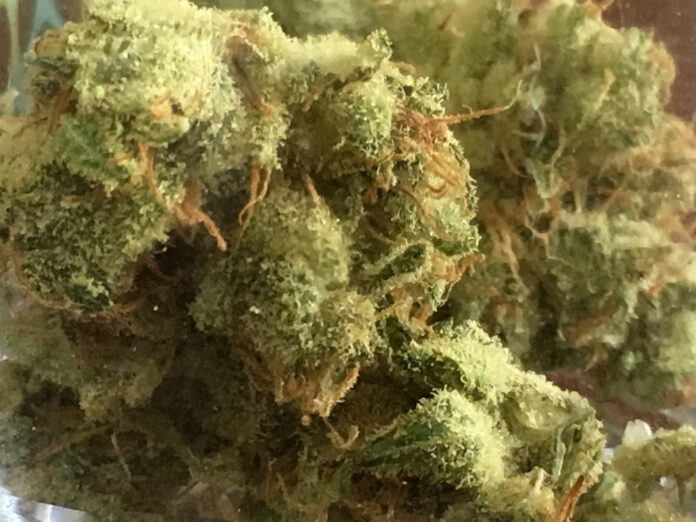
Tax could generate $6.3 million
Should cannabis be taxed at 10 percent?
That’s the question the Sonoma County Board of Supervisors is asking constituents on March 7 during a special election.
In the simplest of terms, Measure A would impose a business tax on both medical and recreational cannabis businesses located in unincorporated Sonoma County. The tax would be applicable to all commercial cannabis-related businesses, from the grower through supply chain operators. The funds collected from the tax would feed into county’s general fund.
Proposed tax rates are as follows: for operators, including manufacturers, nurseries, distributors, transporters, labs and dispensaries, the maximum tax rate is 10 percent of gross receipt sales. Starting points for supply chain operator taxes would be 5 percent for manufacturers and 0 percent for all others. Measure A also imposes a cultivation tax at maximum rates of $10 per square foot for outdoor cultivators, $38 per square foot for indoor cultivators and $22 per square foot for mixed-light cultivators.
The county tax would be tacked onto taxes already imposed by the state. Under Proposition 64, the Adult Use Marijuana Act that legalized recreational cannabis in November, the state will tax nonmedical sales at 15 percent. Additionally, Prop. 64 imposes a cultivation tax on all cannabis at a rate of $9.25 per ounce for flowers and $2.75 per ounce for leaves.
The county has said the funds will be used to “address the risk and adverse impacts of legalized cannabis in Sonoma County while also maintaining the existing general governmental services that the County funds,” according to a staff report dispersed at the Dec. 6 Board of Supervisors meeting. The staff report states that fees imposed on cannabis businesses can recover costs associated with issuing permits, inspections and compliance monitoring. However, the fees cannot be used to fund other costs such as code or law enforcement, policy development, health impacts and education and potential environmental cleanup.
That’s where the tax comes in.
The county plans to use the tax to address costs associated with the new industry in order to ensure funding is not funneled away from other vital county services. However, as a general tax with no specified expenditures attached to it, the county can use the revenue generated from cannabis sales and cultivation — estimated to be roughly $6.3 million — on any county initiative. Examples include roads repair and improvements, according to a fact sheet distributed by the county’s cannabis ad hoc committee.
Although there is no formal opposition language on the ballot, industry leaders find issue with the revenue going into the general fund.
“This is a way to fill the county coffers,” said Craig Litwin, principal at 421 Group, a Sebastopol-based consulting firm dedicated to planning, strategy and development services for cannabis organizations.
The county does not have a good current track record with general fund taxes, which require a simple majority to pass. In 2015, the county attempted to levy an additional .25 percent sales tax, increasing the countywide sales tax to 8.5 percent. The Board of Supervisors said the approval of the tax, also called Measure A, would have created funding needed to repair and maintain the county’s 12,383 miles of road. The Board also wanted to allocate the funds toward the public transportation system and emergency responses.
Opponents criticized the measure because of its general purpose, arguing that voters had no guarantee the money would be used for roads.
The Sonoma County Grower’s Alliance also opposes the cannabis tax measure, in part because the revenue is not earmarked for specific uses.
“The SCGA surveyed our membership and found an overwhelming response opposing Measure A,” a SCGA press release said. “We urge our membership and other citizens to vote no on Measure A.”
But the industry group’s opposition goes beyond potential revenue uses. SCGA believes the taxes will harm small cottage growers, saying the maximum tax rate of 10 percent would exceed profitability and that the rates are excessive for small and medium outdoor grow operations.
Litwin agreed.
“It’s too much. The combination of state and local taxes is significant,” Litwin said.
Should the tax pass, the county will begin issue permits as early as June. However, if the tax measure fails, the county has said it will need to seek additional funding resources before it begins issuing permits.
This policy, Litwin and SCGA believe, is unfair and puts the county and its cannabis industry at a disadvantage.
“If we want to remain competitive, Sonoma County needs to process application now and not use the issuance of permits to compel the industry to vote for the tax,” Litwin said.
Should Measure A fail, Litwin believes the industry should collect signatures to put its own tax measure on the November ballot.
“I’m hoping the industry can create a more appropriately written tax measure,” Litwin said.







